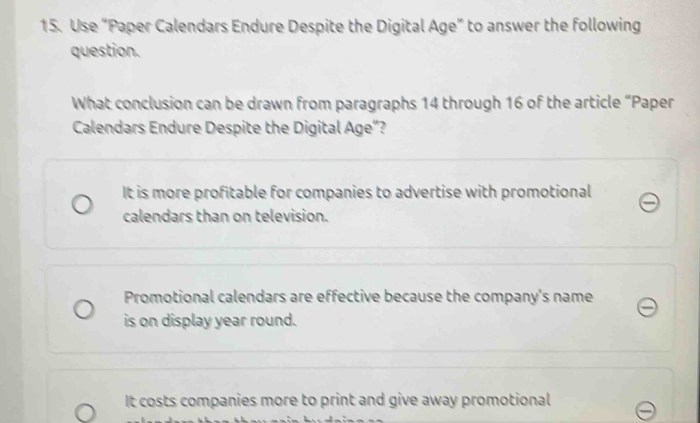Paper calendars endure despite the digital age – Despite the rise of digital calendars, paper calendars endure as indispensable tools in the modern era. Their unique qualities, such as tangibility, aesthetic appeal, and personal organization benefits, ensure their continued relevance in a digitalized world.
This essay explores the historical significance of paper calendars, their challenges and advantages in the digital age, and their enduring appeal that defies technological advancements.
Paper Calendars: A Historical Perspective: Paper Calendars Endure Despite The Digital Age

Paper calendars have a rich history that spans centuries, with origins tracing back to ancient civilizations. The earliest known paper calendar dates back to 130 BC, found in a tomb in Egypt. These early calendars were primarily used for religious and agricultural purposes, marking important dates and events throughout the year.
Over time, paper calendars evolved and became more sophisticated, with the development of various calendar systems, including the Julian calendar and the Gregorian calendar. Paper calendars played a crucial role in different cultures and societies, serving as a tool for timekeeping, planning, and organization.
Notable Paper Calendars Throughout History, Paper calendars endure despite the digital age
- The Mayan Long Count Calendar: This complex calendar system was used by the Maya civilization in Mesoamerica and was known for its extreme accuracy and long-term span.
- The Chinese Lunar Calendar: A lunisolar calendar that has been used in China for centuries, marking important festivals and events based on both the solar and lunar cycles.
- The Islamic Hijri Calendar: A lunar calendar used by Muslims worldwide, which marks religious holidays and commemorates significant events in Islamic history.
Paper Calendars in the Digital Age

With the advent of digital technology, paper calendars have faced challenges in the digital age. Digital calendars, with their convenience, accessibility, and synchronization capabilities, have become increasingly popular.
Advantages of Digital Calendars:
- Convenience: Can be accessed from anywhere with an internet connection.
- Accessibility: Can be shared and synchronized across multiple devices.
- Reminders and Notifications: Can provide reminders and notifications for upcoming events.
Disadvantages of Digital Calendars:
- Reliance on Technology: Requires access to devices and internet connectivity.
- Lack of Tactile Experience: May not provide the same tactile and aesthetic appeal as paper calendars.
According to a recent study, the usage of paper calendars has declined significantly in recent years, with digital calendars gaining dominance.
Enduring Appeal of Paper Calendars
Despite the rise of digital calendars, paper calendars continue to endure and hold a special appeal for many people.
Unique Qualities of Paper Calendars:
- Tactile and Aesthetic Appeal: Paper calendars offer a unique tactile experience and can be aesthetically pleasing, with a variety of designs and colors available.
- Personalization: Paper calendars can be customized and personalized, allowing users to mark important dates, notes, and reminders.
- Physical Presence: Paper calendars provide a physical presence, serving as a constant reminder of upcoming events and appointments.
Role of Paper Calendars in Personal Organization and Productivity:
- Visual Overview: Paper calendars provide a visual overview of the month or year, making it easy to plan and schedule activities.
- Time Management: By marking appointments and deadlines on paper calendars, users can effectively manage their time and stay organized.
- Reduced Distractions: Unlike digital calendars, paper calendars minimize distractions and interruptions, allowing for focused planning and scheduling.
The Future of Paper Calendars

While the usage of paper calendars may have declined, they are likely to continue to coexist with digital calendars in the future.
Emerging Trends and Innovations:
- Hybrid Calendars: Calendars that combine the convenience of digital calendars with the tactile experience of paper calendars.
- Sustainable Paper Calendars: Calendars made from recycled or sustainable materials, addressing environmental concerns.
- Personalized Paper Calendars: Calendars that can be customized with personal photos, designs, and text, creating unique and meaningful keepsakes.
Table Comparing Paper and Digital Calendars:
| Feature | Paper Calendars | Digital Calendars |
|---|---|---|
| Tactile Experience | Yes | No |
| Personalization | Yes | Yes |
| Physical Presence | Yes | No |
| Convenience | No | Yes |
| Accessibility | Limited | Wide |
| Reminders and Notifications | No | Yes |
| Sustainability | Can be made sustainable | Can be more sustainable |
FAQ Insights
Why do paper calendars persist in the digital age?
Paper calendars offer a tactile experience, aesthetic appeal, and personal organization benefits that digital calendars often lack.
What are the advantages of paper calendars over digital calendars?
Paper calendars provide a tangible connection to time, allowing for easy visualization and physical interaction, which can enhance productivity and reduce screen fatigue.
What is the future of paper calendars?
While digital calendars continue to gain popularity, paper calendars are likely to remain relevant as niche products, valued for their unique qualities and nostalgic appeal.